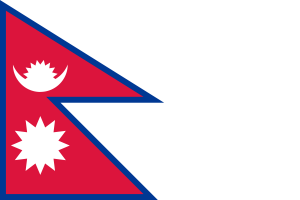Language/Nepali-individual-language/Grammar/Future-Tense-in-Nepali
| ◀️ Past Tense in Nepali — Previous Lesson | Next Lesson — Adjectives in Nepali ▶️ |
As a Nepali language teacher with 20 years of experience, I am thrilled to teach you the future tense in Nepali. This is an essential aspect of Nepali grammar, and mastering it will allow you to communicate effectively with Nepali speakers. In this lesson, you will learn how to conjugate verbs in the future tense and how to use them in different types of sentences.
With the completion of this lesson, consider investigating these related pages: Verbs kriyaharu क्रियाहरू & Adjectives in Nepali.
Understanding the Future Tense in Nepali
In Nepali, the future tense is used to describe actions that will take place at a specific time in the future. Like in English, it is formed by using the auxiliary verb “will” or “shall” before the base form of the verb. However, in Nepali, there is no distinction between “will” and “shall.”
Here is an example of a sentence in the future tense:
- I will write a letter tomorrow. - मैले भोलि एक पत्र लेख्नेछु। (maile bholi ek patra lekhnechu)
“मैले” (maile) is the subject, “भोलि” (bholi) indicates the time in the future when the action will occur, and “लेख्नेछु” (lekhnechu) is the future tense conjugation of the verb “लेख्नु” (lekhnu), which means “to write.”
Conjugating Verbs in Future Tense
The future tense is formed by adding “-ने” (-ne) at the end of the verb stem in the first and the second person singular and plural. In the third person singular and plural, the future tense is formed by adding “-े” (-e) at the end of the verb stem.
Here is the future tense conjugation of the verb “जानु” (janu), which means “to go”:
| Nepali (individual language) | Pronunciation | English |
|---|---|---|
| म जाने छु। (ma jane chu) | ma jane chu | I will go. |
| तपाईं जानेछिन्। (tapai janechin) | tapai janechin | You will go. |
| उनि जानेछ। (uni janechha) | uni janechha | He/She/It will go. |
| हामी जानेछौं। (hami janechhaum) | hami janechhaum | We will go. |
| तिमीहरू जानेछौ। (timiharū janechhau) | timiharū janechhau | You all will go. |
| उनीहरु जानेछन्। (unīharu janechhan) | unīharū janechhan | They will go. |
Using the Future Tense in Different Types of Sentences
Like in English, the future tense is used to express certainty about future events. Here are some examples of different types of sentences using the future tense:
- I will attend the ceremony tomorrow. - म भोलि कार्यक्रममा हुनेछु। (ma bholi karyakramama hunnechu)
- She will arrive tomorrow at 11 am. - उनी ११ बजे भोलि आउनेछ। (unī 11 baje bholi aunechha)
- We will visit Pokhara next month. - हामी अर्को महिनामा पोखरा गर्नेछौं। (hami arko mahinama Pokhara garnechhaum)
Conclusion
In conclusion, the future tense is an essential aspect of Nepali grammar. By learning how to conjugate verbs in the future tense and how to use them in different types of sentences, you will be able to communicate effectively with Nepali speakers. Keep practicing and using the future tense in your conversations, and you will soon become proficient in this aspect of the Nepali language.
Impressive work on finishing this lesson! Explore these additional pages to enhance your understanding: Negation in Nepali & Adverbs in Nepali.
Other Lessons
- Introduction to Nepali Verbs
- Adjectives
- Negation
- Verbs kriyaharu क्रियाहरू
- Pronouns
- How to Use Be
- Noun Cases in Nepali
- 0 to A1 Course
- Negation in Nepali
| ◀️ Past Tense in Nepali — Previous Lesson | Next Lesson — Adjectives in Nepali ▶️ |

